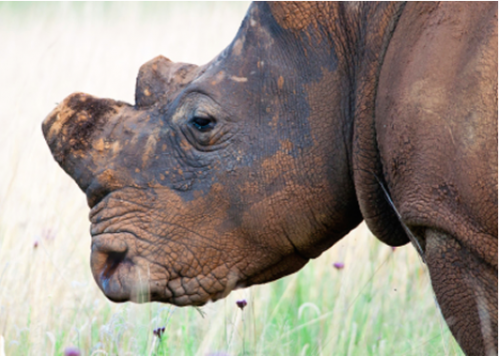
So, the Pretoria High Court has apparently ordered[i] that South Africa’s current ban on trade in rhino horn should be lifted.
Some reports indicate that the government, in the guise of the Department of Environmental Affairs, failed to follow mandatory consultative procedures before introducing its moratorium. Other reports suggest the judge also questioned the effectiveness of the ban.
The news appears to be spreading faster than a poacher’s bullet, with reactions ranging from utter depression to claims that a ‘battle has been won’. But that simply reflects the fiercely-held and diametrically-opposed views on this subject, both inside South Africa and elsewhere.
Within hours of the announcement, I was contacted and asked for my reactions. Well, so as not to disappoint, here they are.
Some people are asking whether this is likely to influence how countries may vote when the major conference of the Convention on International Trade in Endangered Species (CITES) takes place in Johannesburg in September next year[ii]; if it is true South Africa will seek authorization to engage in international commercial trade of rhino horn (and that isn’t actually known yet). I don’t see why it should. The impression I get is that most nations are extremely nervous about allowing such trade and vast numbers within non-governmental organizations will undoubtedly actively lobby against it.
Will a re-opening of domestic trade reduce poaching? That’s an important question and is an effect which those in favour vehemently argue will occur. Not simple to answer. It just might. Because those who currently deploy poaching gangs may, instead, be able to go and buy horns legally.
BUT, it will offer opportunities to launder illegally-sourced horns and this will involve horns obtained by poaching or pseudo-trophy-hunting. I think it is highly likely to also lead to an increase in smuggling. Why? Because even if you have legal domestic trade, you still won’t have legal international trade. The markets and consumers are outside South Africa. And those are clandestine markets. I, and others, are still waiting to see whether any potential importing nation is ready to tango by legalizing its domestic rhino horn trade and use. Until that happens, this remains solely an academic or legalistic discussion
Ministry of Environmental Affairs officials may have to watch rhino horns being sold around the provinces but they cannot issue the necessary CITES documents for them to be transported for a primarily commercial purpose to, for example, China or Viet Nam; which seem to be the countries most smugglers are heading towards for the moment.
Until the CITES conference reaches a decision in 2016, if it does end up being asked to debate the issue, this court judgement, to my mind, takes the matter no further forward.
Indeed, I suspect those who sought the decision may have done themselves a disservice. Had I been in their shoes, I would have bided my time and better-prepared my case for the 2016 event. And, very importantly, done everything I could to ensure my government would argue that international commercial trade will be good for conservation and can be conducted without adversely affecting rhinoceroses in the wild.
By putting the cart before the horse, one risks alienating potential supporters, in and outside South Africa. You will, for sure, encourage opponents to be more vociferous and you might even inspire those currently sitting on the fence to turn against you, on the basis that they’ll feel they are being forced in a certain direction.
One may also prompt all sorts of speculative purchasing, an increase in prices on clandestine markets, and illegal acquisition of horns through robberies and burglaries, so that any reduction in specific criminality, for instance poaching, will be more than replaced by other crime-types.
I would certainly suggest that any horn owner who may seek to cash in now take great care. If you do not reflect very carefully about potential customers, and what they will do with their purchases, you might be heading into scenarios which subsequently bring you before the courts on criminal conspiracy or racketeering charges.
I look forward to learning whether the judge’s decision will be appealed. I certainly do not seek to question the judgement. However, for the moment, I think this has maybe muddied already very cloudy waters.
[i] http://www.news24.com/SouthAfrica/News/sa-judge-lifts-domestic-ban-on-rhino-horn-trade-20151126




